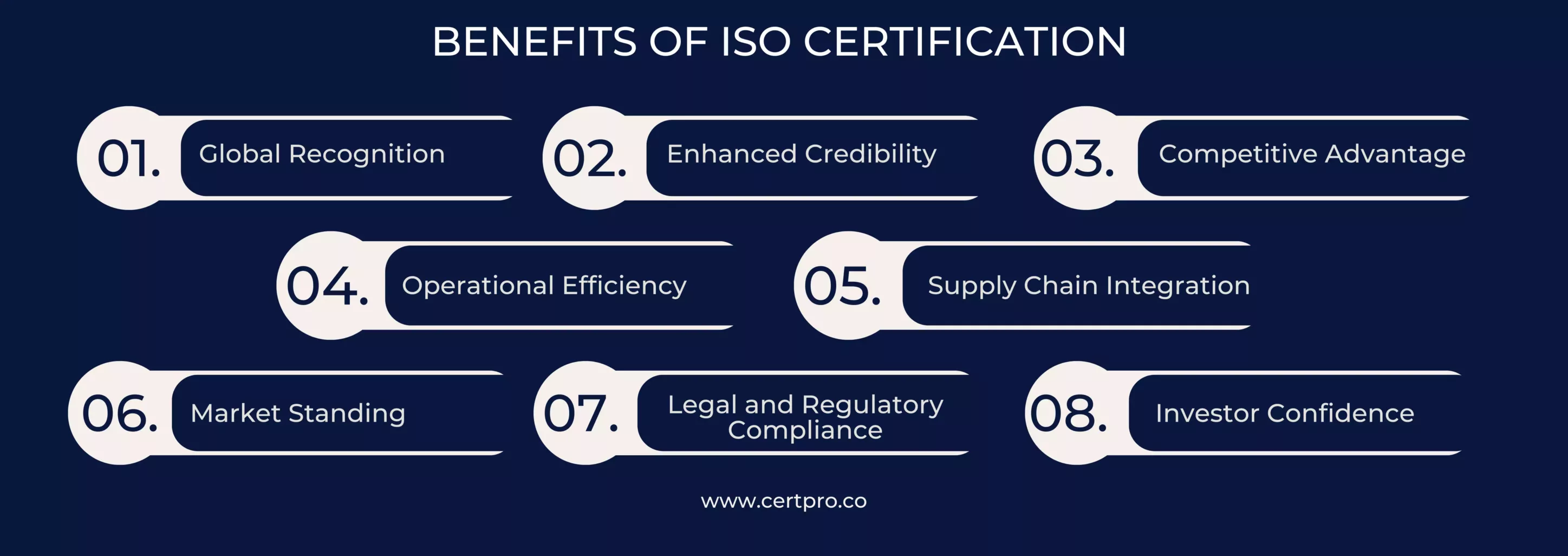Philippines
iso certification in Philippines
The Philippines, with its gorgeous coastline and lively culture, is a major actor in Southeast Asia. As the world’s twelfth-most populous country, it has made great economic gains. With a developing economy, the Philippines ranks among the top nations in terms of nominal GDP and purchasing power parity (PPP). The country has made great success in a variety of industries, resulting in an increase in demand for ISO certification in the Philippines.
The Philippines’ service industry is rapidly expanding, mirroring the country’s economic progress. The Philippines has made a position for itself in the worldwide market as a significant exporter of IT services, Business Process Outsourcing (BPO) services, and software services. The Philippines’ technology startup environment is growing, with a noticeable growth in the number of technology businesses. Furthermore, the Philippines’ automobile industry has grown in prominence, adding to the country’s economic success.
A wide range of industries, including those in banking, financial services, information technology, retail, tourism, media, entertainment, healthcare, logistics, telecommunications, mining, construction, agriculture, defense manufacturing, electrical, automotive, infrastructure, petroleum, chemicals, pharmaceuticals, textiles, aviation, and minor sectors, are present in the Philippines. This wide range highlights the necessity of ISO certification in the Philippines, which is vital for upholding quality standards and guaranteeing adherence to regulations in these diverse fields. The nation’s changing economic environment emphasizes even more how important ISO certification is to maintaining high standards across the board.
Why ISO certification in Philippines?
Gaining ISO certification is a critical first step toward establishing trust, guaranteeing quality, and increasing operational effectiveness for organizations in the Philippines. Obtaining ISO certification is an indication of a company’s strong dedication to maintaining strict standards in a variety of industries. In particular, ISO 9001 certification strengthens Filipino businesses by placing a strong emphasis on quality control, which makes it easier to produce trustworthy, customer-focused goods and services. ISO 14001 covers environmental management This is an important factor for a country that is committed to sustainable development in the midst of rapid industrial expansion. In keeping with the Philippines’ aspirations for digital transformation, ISO certification—in particular, ISO 27001 certification in the Philippines—becomes essential for protecting confidential data in the rapidly changing digital environment.
These certifications are essential for boosting consumer confidence and giving businesses a worldwide competitive edge in the complex Philippine market. ISO certification is a mark of strict adherence to standards, which improves product reliability and reduces waste. Moreover, it optimizes procedures, increasing efficiency and lowering running costs.
In order to assist businesses in successfully navigating the certification process, a number of ISO certification bodies operate in the Philippines. These bodies provide certification services, evaluation, and guidance. In the end, ISO certification in the Philippines enables businesses to build robust frameworks, conform to global best practices, and promote quality, sustainability, and security in order to further the development of the country.
Related Links
SOC 2 in Philippines
ISO 27701 in Philippines
GDPR in Philippines
ISO 27018 in Philippines
HIPAA in Philippines
CCPA in Philippines
PIPEDA in Philippines
ISO 17025 in Philippines
ISO 13485 in Philippines
CE Mark in Philippines
GDP in Philippines
GLP in Philippines
ISO 9001 in Philippines
ISO 14001 in Philippines
ISO 45001 in Philippines
ISO 22000 in Philippines
HACCP in Philippines
ISO 22301 in Philippines
ISO 21001 in Philippines
ISO 41001 in Philippines
ISO 20000-1 in Philippines

UNDERSTANDING ISO CERTIFICATION IN PHILIPPINES
In the Philippines, a company demonstrates its commitment to providing dependable and exceptional goods and services through its ISO 9001 accreditation. As the nation develops its industrial sector and gives priority to sustainable development, the ISO 14001 standard—which addresses environmental responsibility—becomes more and more important. One of the main goals of ISO 27001 is to protect sensitive data, which is an important part of the Philippines’ continuing digital transformation process. ISO certification confers significant benefits to the diversified Philippine market by fostering customer confidence and empowering enterprises to compete on a global scale. ISO certification improves product reliability through process simplification, waste reduction, and inefficiency elimination, in addition to demonstrating adherence to strict criteria.
In essence, ISO certification in the Philippines gives companies the ability to build strong frameworks that adhere to global best practices. Businesses that put quality, sustainability, and security first not only benefit themselves financially but also improve the Philippines’ standing internationally. The International Organization for Standardization (ISO) formally acknowledges that a company’s management system, procedures, goods, or services satisfy specified standards through ISO certification. This internationally renowned, independent organization creates standards to guarantee quality, safety, and efficacy across a range of businesses. Because ISO standards are widely accepted, Philippine businesses can join international markets with credibility. Businesses with ISO certification frequently have a competitive edge by showcasing their dedication to quality and ongoing development. The Philippines’ emphasis on sustainability is in line with the environmental management standards addressed by ISO 14001 certification. Customer requirements are often highlighted in ISO standards, which improve retention and satisfaction. For Philippine suppliers participating in international supply chains, ISO certification is especially important. As a prerequisite for ISO certification, continuous improvement helps companies stay competitive and maximize their operations. In the end, ISO certification enhances a business’s reputation by proving adherence to international quality standards and cultivating confidence with clients and associates.
The following are crucial steps in the Philippine’s ISO certification process:
Preparation and Awareness: Finding the precise ISO standard that applies to your sector and business objectives is the first step. Gain a thorough understanding of the benefits, requirements, and implementation processes of the standard.
Planning: Determine which specific ISO standard best fits your industry and your company’s goals. Acquire a comprehensive understanding of the standard’s requirements, benefits, and implementation processes.
Documentation: Create or update the necessary paperwork, including policies, procedures, work instructions, and records, to make sure they meet the requirements outlined in the ISO standard.
Implementation: Implement the processes and procedures that have been documented throughout your company. Keep a careful eye on the implementation process and make any required adjustments as needed to ensure successful deployment.
Internal Audit: Conduct an internal audit to find any non-conformities and assess how well the deployed processes are working. To increase overall compliance, take immediate action to resolve these problems and implement the required adjustments.
Management Review: Organize a management review to assess how the implementation of the ISO management system is going in terms of its effectiveness and applicability. To improve the overall functionality, determine if any changes or enhancements are required.
Certification Body Selection: Select a reliable certifying body to carry out the external assessment. The certifying authority will examine your documentation, processes, and execution to evaluate your preparedness for certification. This is an important step in figuring out whether your company complies with ISO requirements.
Stage 1 Audit (Document Review): The certification body performs a preliminary review of your policies and records to confirm that they follow the guidelines provided in the ISO standard.
Stage 2 Audit (On-Site Audit): To verify the implementation of your ISO management system, the certification authority conducts an on-site audit. They evaluate how well your processes match the requirements outlined in the standard throughout this audit.
Certification Decision: The certification body decides whether to grant certification based on the audit findings. You’ll receive an ISO certificate if your business complies with the standard’s standards.
Surveillance Audits: To verify continuous conformity with the ISO standard, the certifying body conducts surveillance audits on a regular basis. These audits, which are usually carried out once a year, make sure that your company keeps up with the required standards.
Throughout the entire process, you must work closely with the certification organization of your choice and strictly adhere to their standards.
POPULAR ISO STANDARDS IN PHILIPPINES
Many companies in the Philippines are aggressively pursuing various ISO certifications, with ISO 9001 (Quality Management System) becoming increasingly well-known worldwide. This certification denotes a dedication to providing superior products or services, which increases customer happiness and facilitates streamlined operations and higher efficiency. Improved market access, increased customer trust, and increased operational efficiency are all benefits of Philippine ISO 9001 Certification, which are especially advantageous for exporters.
In the Philippines, ISO 14001 (Standard Environmental Management Systems) addresses environmental concerns. This certification offers advantages like reducing environmental hazards, maintaining legal compliance, and improving the company’s reputation. It also shows a commitment to sustainable operations. The Information Security Management System, or ISO 27001 certification in the Philippines, is essential for Philippine firms dealing with the growing threat of cyberattacks. Increased consumer trust, better risk management, enhanced data security, and adherence to data protection regulations are all guaranteed by this accreditation.
In the Philippines, ISO 45001 certification prioritizes occupational health and safety. This demonstrates a dedication to worker welfare by lowering workplace injuries, upholding safety regulations, boosting employee happiness, and increasing productivity. The Food Safety Management System, or ISO 22000, is essential to the Philippine food industry since it promotes consumer confidence and eases international trade. Benefits include increased standards, worldwide market access, and compliance with food safety rules. Together, these ISO standards support the Philippines’ technological breakthroughs, regulatory requirements, and development goals. As such, they are essential to improving industry practices and gaining international recognition for Filipino-owned enterprises.
BENEFITS OF ISO CERTIFICATION IN PHILIPPINES
In the Philippines, ISO certification is essential for guaranteeing that goods and services fulfill international quality standards, which boosts customer satisfaction and gives businesses a competitive edge. Moreover, following ISO lowers the chance of business failure by ensuring that procedures are followed correctly. The Philippines’ businesses can benefit greatly from ISO certification, which promotes expansion, credibility, and operational excellence.
First and foremost, ISO certification improves a company’s standing in the marketplace by demonstrating its adherence to global standards, which in turn increases client confidence. Higher levels of customer loyalty and retention are the outcome of this enhanced credibility.
Furthermore, the Philippines benefits from ISO certification since it lowers trade obstacles, creates a recognized quality standard, and opens doors to worldwide markets. For Filipino businesses looking to grow abroad and take advantage of business prospects, this is quite beneficial. Businesses in the Philippines that hold an ISO certification also have an advantage over rivals in the market. This accreditation demonstrates their commitment to quality, efficiency, and continuous progress, setting them apart from rivals and attracting new clients and business partners.
- Global Recognition: The global acknowledgment of ISO certification opens up avenues for worldwide trade and market expansion for businesses in the Philippines.
- Enhanced Credibility: It enhances credibility and trust among clients, partners, and investors, both locally and globally.
- Competitive Advantage: Firms holding ISO certification gain a competitive edge over their competitors by showcasing their commitment to excellence and quality.
- Operational Efficiency: Enhancements in processes contribute to an overall increase in operational effectiveness.
- Supply Chain Integration:Obtaining ISO accreditation becomes essential for numerous global supply chains, providing opportunities to collaborate with international partners.
- Market Standing: Enhancing a company’s market standing, ISO certification draws in more clients and opens up additional business opportunities.
- Legal and Regulatory Compliance: ISO certification simplifies adherence to both national and international laws.
- Investor Confidence:By boosting investor confidence, it demonstrates a commitment to best practices.
In the end, ISO certification in the Philippines gives businesses the ability to thrive in the long run by enabling them to enter worldwide markets with credibility, compete successfully, maintain sustainable and ethical business practices, and improve their operations continuously.

ISO CERTIFICATION BODIES IN PHILIPPINES
1. International Accreditation Forum (IAF): The International Accreditation Forum (IAF) serves as a global association uniting Conformity Assessment Accreditation Bodies and entities focused on conformity assessment. Its scope extends to diverse domains such as management systems, products, services, personnel, and related programs. The IAF facilitates collaboration and standardization to ensure the credibility and uniformity of conformity assessment practices worldwide.
2. SIS Certifications Pvt. Ltd: A well-known certification body with a focus on management systems certifications is SIS Certifications Pvt. Ltd., formerly known as Syndicate of International System Certifications Private Limited. They provide product certifications in addition to ISO 9001:2008, ISO 14001:2004, OHSAS 18001:2007, ISO 13485, ISO 22000, and ISO 27001 certifications. Since 2003, the International Organization for Accreditation Services (IOAS) in Grenada has approved SIS certifications, certifying over 1000 global firms. The organization places a strong emphasison then ongoing development of skills and continual improvement in order to uphold the validity and integrity of its certification process. For the most reliable information, organizations pursuing certification are advised to learn about the certifying body’s area of expertise and accrediting scope from official sources or direct communication.
3. GCL International: Situated in the United Kingdom, GCL International offers globally recognized certification services across five continents. Our accreditation improvement comes from esteemed international bodies such as the United Kingdom Accreditation Service (UKAS), the International Organic Accreditation Service (IOAS), Food Safety System Certification (FSSC), and the Association of Professional Social Compliance Auditors (APSCA), among others. GCL INTL specializes in providing assessment, inspection, verification, certification, and training services tailored to diverse business sectors and standards.
4. Factocert: Factocert stands as a prominent global ISO certification and consulting firm, specializing in services related to various ISO standards, including CMMI, CE mark, VAPT, PCI-DSS, cybersecurity, SOC, and more. With over a decade of experience and a team of 30+ industry experts across 20+ locations, Factocert is recognized internationally for its consulting and certification services. The company boasts an impressive track record of over 600 successfully executed projects, providing a comprehensive, one-stop solution for all certification and consulting needs.
5. NQA: The National Quality Assurance, or NQA, is an international certification organization that offers authorized training, certification, and support services. NQA assists companies in improving performance, managing risks, and obtaining globally recognized certifications. NQA specializes in management system certification for standards such as ISO 9001 (Quality Management), ISO 14001 (Environmental Management), and ISO 27001 (Information Security Management), at least among others. It is renowned for its proficiency across a range of industries, which applies to better workflows and environmentally friendly company operations.
INDUSTRIES THAT BENEFIT FROM ISO CERTIFICATION IN PHILIPPINES
The Philippines is witnessing a growing recognition of the pivotal role ISO certification plays in business success, symbolizing a firm commitment to excellence, safety, and sustainability. Essential to this process are ISO consultants in the Philippines, guiding businesses through certifications like ISO 27001 certification in the Philippines, which is crucial for ensuring data security in the dynamic IT sector. This certification not only facilitates technological advancement but also establishes and maintains client trust. In the manufacturing realm, ISO 9001 accreditation is elevating operational efficiency and product quality, fostering a culture of continual improvement, and enhancing resilience in competitive markets. Meanwhile, the automotive sector benefits from ISO/TS 16949, ensuring the reliability and security of vehicles and solidifying the Philippines’ global standing in top-notch automobile production.
The significance of additional certifications like SOC 2 certification in the Philippines, GDPR certification in the Philippines, and HIPAA certification in the Philippines is noteworthy. These certifications contribute significantly to the overall enhancement of the healthcare system while addressing data protection and privacy concerns in various sectors. Beyond individual enterprises, the impact of ISO certification extends to broader societal improvements. Construction practices adopt more eco-friendly approaches, educational institutions witness elevation, and sustainable methods permeate diverse industries, contributing to a greener and healthier Philippines.
In essence, ISO consultants in the Philippines guide certification processes in the Philippines as a multifaceted catalyst for positive change, influencing businesses, industries, and society at large, fostering prosperity, sustainability, and high standards across diverse sectors.
FAQ
What is the significance of ISO certification in the Philippines?
ISO certification in the Philippines holds significant importance as it ensures that businesses adhere to international quality standards, fosters customer satisfaction, and provides a competitive edge. It also plays a crucial role in market expansion, operational efficiency, and global recognition.
Which ISO certifications are particularly relevant to the Philippine manufacturing sector?
ISO 9001 accreditation is particularly relevant to the Philippine manufacturing sector, as it enhances operational efficiency and product quality. Additionally, ISO/TS 16949 certification ensures the reliability and safety of vehicles, contributing to the country’s global reputation in automobile production.
How does ISO 27001 certification benefit the IT sector in the Philippines?
ISO 27001 certification is crucial for the IT sector in the Philippines as it addresses the growing threat of cyberattacks. It enhances consumer trust, improves risk management, ensures data security, and ensures compliance with data protection regulations.
What steps are involved in the ISO certification process in the Philippines?
The ISO certification process in the Philippines involves preparation and awareness, planning, documentation, implementation, internal audit, management review, certification body selection, stage 1 audit (document review), stage 2 audit (on-site audit), certification decision, and surveillance audits to ensure continuous conformity with ISO standards.
How does ISO certification contribute to environmental responsibility in the Philippines?
ISO 14001 certification in the Philippines, which addresses environmental management, plays a crucial role in promoting environmental responsibility. It helps in reducing environmental hazards, maintaining legal compliance, and enhancing the reputation of businesses committed to sustainable operations.
HOW DOES THE NIST CYBERSECURITY FRAMEWORK FUNCTION, AND WHY IS IT IMPORTANT?
Emerging cyber threats make cybersecurity an essential consideration for organizations handling and managing data. In this regard, the NIST cybersecurity framework applies to improving your cybersecurity program. It is a set of guidelines that helps improve your...
AI Audit Guidelines and Best Practices: Applying AI Towards Its Full Potential
Artificial Intelligence is entering different industries, where it is used for customer handling, data management, and documentation processes. The interference of AI is increasing concerns regarding ethical practice and safety. Therefore, AI audits have become more...
AUDIT LOG: INFORMATION SECURITY BEST PRACTICES FOR BUSINESSES
An audit log is the best information security practice for organizations. This article elaborates on the operational process of audit logs and how companies utilize them for business growth. What is an audit log, and how does it work for organizations? For more...












